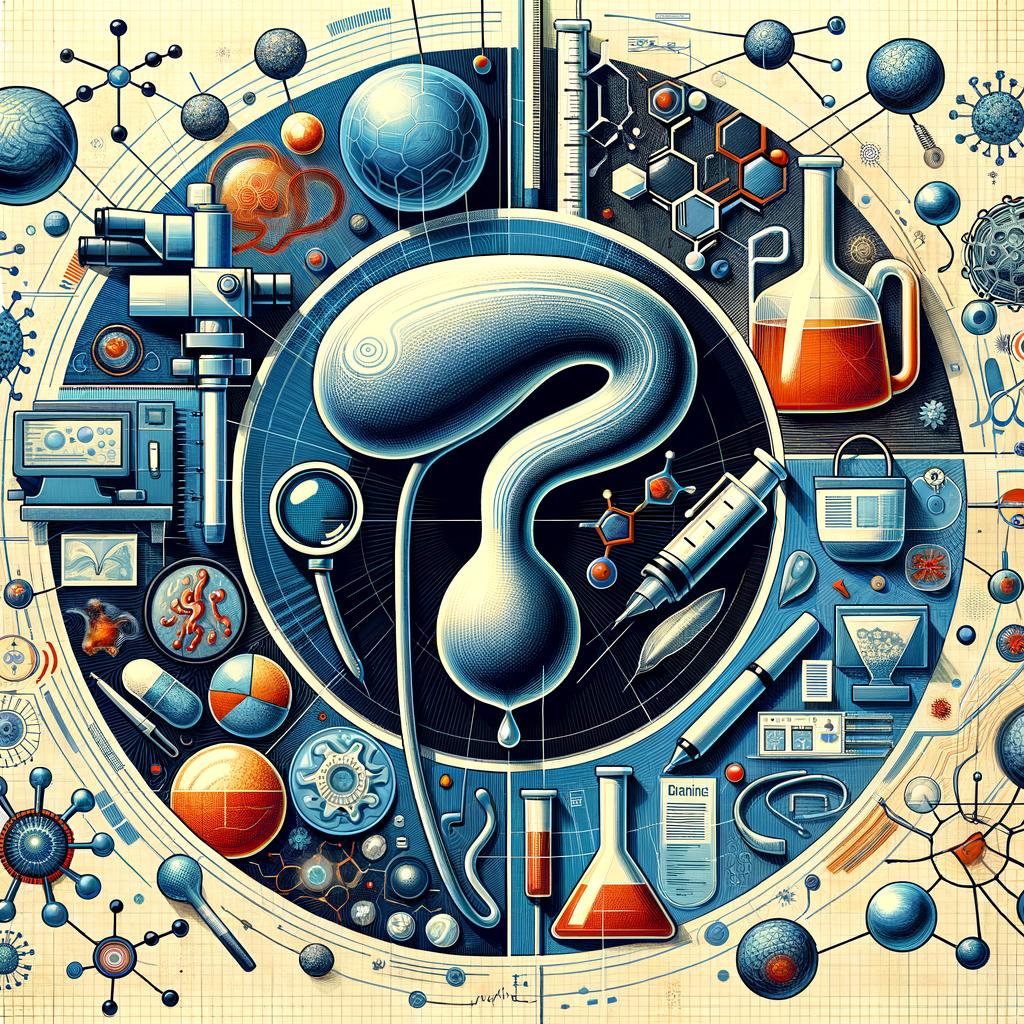Introduction: How Prostate Health Affects Urination
“Why would an enlarged prostate interfere with urination?” you may innocently wonder. Well, in one swift sentence, an enlarged prostate blocks the flow of urine from the bladder. This simple yet crucial concept can make the life of a man dealing with prostate-related problems quite uncomfortable. Picture a traffic jam on your daily commute, with the large cars representing an enlarged prostate, and smaller vehicles akin to the steady and necessary flow of urine, leading to an inevitable pile-up. In this article, we’ll take a deep dive into the world of urinary physiology to untangle this tricky question.
The Prostate: From Pea-Sized to Problematically Protruding
Even amid the complexity of the human body, the often overlooked prostate still strikes us as an anatomical enigma. Nestled within the male reproductive system, this little gland, originally not much bigger than a walnut, has a big job – facilitating sperm transportation. However, this unsung hero can sometimes grow out of its sheer size, leading to what doctors call an enlarged prostate or medically known as Benign Prostatic Hyperplasia (BPH).
Pathway to the Problem
While the model of cars on a highway offered a punchy metaphor, let’s return to the actual anatomical setting for a clearer understanding. Imagine a neat, narrow tube named the urethra that carries urine from the bladder, passing right through the center of the prostate. As the prostate enlarges, it binches this same line, like a stubborn thumb over the end of a straw.
Consequences of an Enormous Prostate
An enlarged prostate doesn’t just block the flow of urine but also puts a severe strain on the bladder. Overtime, the bladder muscle becomes thicker and oversensitive triggering frequent yet gradually weaker urine flow. This scenario births an endless loop of discomfort: frequent urges to urinate, particularly at night, difficulty starting urination and feeling like your bladder is never entirely empty.
Not Just a Simple Stall
Avoiding the doc’s office or dismissing it as just ‘a problem of old age’ can potentially turn this small stall into a giant roadblock. If left unchecked, an enlarged prostate can lead to serious problems like urinary tract infections, bladder stones, or even kidney damage.
Managing the Menace
The beautiful thing about bodies, much like the beauty in cars, is their serviceability when things go awry. Possible interventions for an enlarged prostate range from lifestyle changes and medication to surgery in severe cases. A healthcare provider is the best guide on this route; they’ll navigate the available options considering the patient’s age, overall health, and the magnitude of the symptoms.
The Light at the End of the Tunnel
Despite it being a common condition, an enlarged prostate needn’t strike terror in men’s hearts anymore than occasional traffic snarl-ups on the highway. With access to a network of health professionals and an arsenal of treatment approaches, there is indeed light at the end of this tunnel.
Conclusion: Restoration Road
In conclusion, the question of ”Why would an enlarged prostate interfere with urination?” unravels itself as we understand the link between the prostate’s size and the effect on urinary physiology. Just like clearing up the highway after a traffic jam, managing BPH involves a careful examination of the situation before moving forward with the best plan for restoration.
Frequently Asked Questions
1. Can drinking water help with an enlarged prostate?
While drinking water is crucial for overall health and urinary function, it cannot effectively treat an enlarged prostate.
2. What are some symptoms of an enlarged prostate?
Symptoms include frequent urge to urinate, difficulty starting urination, a weak stream of urine, and the sensation of an unemptied bladder.
3. How is an enlarged prostate diagnosed?
An enlarged prostate is diagnosed through a physical examination, medical history, and a range of specific tests advised by healthcare providers.
4. What is the connection between sexual function and an enlarged prostate?
An enlarged prostate may affect sexual function indirectly ‒ largely related to the discomfort caused by urinary symptoms.
5. Is it possible to prevent an enlarged prostate?
While there is no guaranteed way to prevent BPH, maintaining a healthy lifestyle and regular medical checkups can help in catching and managing the condition early.


